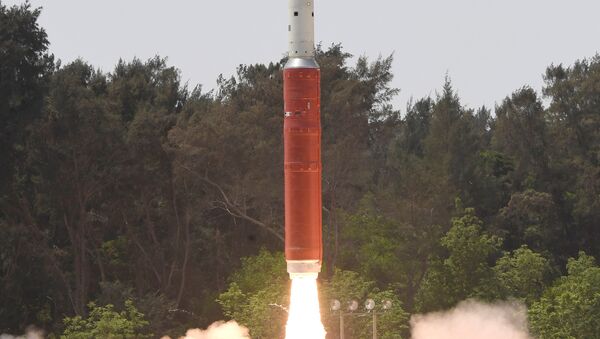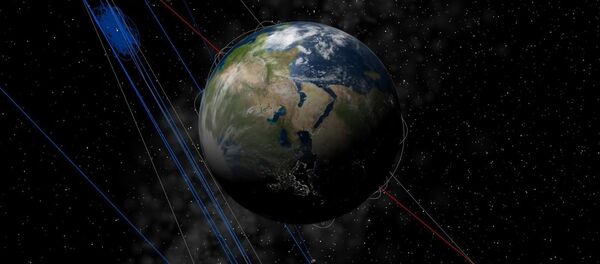New Delhi (Sputnik): A day after the US space agency expressed concern over debris generated in space by India's anti-satellite missile test on 27 March, Pakistan has asked world leaders to take measures to stop such tests because ignoring the military dimension of such actions would destabilise regional peace and security.
"This ASAT test should be a matter of grave concern for the international community not only in terms of generation of space debris but also because of its ramifications for long term sustainability of peaceful space activities. It would also be amiss to ignore the military dimension of such actions and its implications on the global and regional peace, stability and security", Pakistan foreign ministry said on Wednesday.
READ MORE: Russia Ready to Hold Dialogue to Keep Space Free of Arms — Moscow
Pakistan's Foreign Ministry has said that it remains a strong proponent of the non-militarisation of outer space.
"We will continue to work with like-minded countries to address gaps in the international legal regime governing the exploration and use of outer space with a view to ensuring that no one threatens peaceful activities and applications of space technologies for socio-economic development. In the absence of strong legal instruments, other states could also follow suit by demonstrating such capabilities", the Pakistani Foreign Ministry added.
Meanwhile, US State Department deputy spokesperson Robert Palladino on Tuesday played down the statement issued by NASA and said that the issue of space debris is an important concern for the US but that it still agrees with what the Indian scientists claimed about the debris.
READ MORE: India Launches Military Surveillance Satellite to Track Enemy Radar (VIDEO)
"The issue of space debris, that is an important concern for the United States, and I would say that we took note of the Indian Government's statements that the test was designed to address space debris issues," US State Department deputy spokesperson Robert Palladino said.
The US reiterated that it has a strong strategic partnership with India, and it will continue to pursue shared interests in space, in scientific and technical cooperation with India, and that includes collaboration on safety and security in space.
Indian Prime Minister Narendra Modi announced on 27 March that New Delhi had successfully tested its first domestically-produced anti-satellite missile, hitting a defunct Indian satellite at an altitude of 300 kilometres (around 186 miles). According to Modi, India became the fourth country in the world to possess such a weapon after China, Russia, and the United States.



